Thanks to cutting-edge methods and equipment, attaining glowing, youthful skin has never been simpler in the skincare industry. Dermaplaning is one of the best ways to exfoliate the skin and get rid of peach fuzz, leaving the face looking radiant. The quality of the instruments used, especially Esthetician-approved dermaplane tools that have been approved by estheticians, is the foundation of a successful dermaplaning session. These instruments are made to guarantee professional-caliber outcomes, safety, and effectiveness.
Introduction to Esthetician-Approved Dermaplane Tools
Dermaplaning is a manual exfoliation method in which fine hair and dead skin cells are gently scraped off the skin’s surface with a sterilized blade. Despite the technique’s simplicity, the tools are crucial to its efficacy. Dermaplane instruments that have been approved by estheticians are made to professional standards and provide better performance and safety than generic substitutes. These instruments are appropriate for both professionals and skincare aficionados because they are frequently made with ergonomics, accuracy, and sanitation in mind.
Benefits of Esthetician-Approved Dermaplane Tools
There are numerous advantages to using derma plane equipment that have been approved by estheticians:
- Improved Skin Exfoliation
Expert-grade instruments efficiently eliminate dead skin cells, encouraging cell turnover and exposing smoother, more radiant skin.
Read more: SPA BUNDLE OF THREE LUMOHS DERMAPLANE HANDLES
- Secure and Clean
Because they are constructed from premium materials and frequently have stainless steel blades, these tools reduce the possibility of irritation or infection.
- Better Absorption of the Product
These instruments maximize the effectiveness of skincare products by removing the outermost layer of dead skin, allowing them to penetrate deeper.
- Adaptability
These tools are appropriate for a range of skin types and can help with issues like uneven skin texture, fine wrinkles, and dullness.
Considerations for Esthetician-Approved Dermaplane Tools
It’s crucial to keep a few things in mind before purchasing dermaplane tools:
- Quality of Blades
Choose tools with rust-resistant, long-lasting, and sharp stainless steel blades.
- Manage the Design
Comfortable grips from ergonomic handles guarantee accuracy and lessen hand fatigue while in use.
Read more: Lumohs Dermaplane no. 3 Handle
- Comparing Single-Use and Reusable
Single-use blades provide superior hygiene and are frequently chosen in professional settings, even though reusable instruments are more environmentally friendly.
- Skin Type Compatibility
Make sure the instrument is appropriate for your skin type. Gentler blades may be needed for sensitive skin.
Dermaplane Tools and Equipment
A few key equipment and accessories are needed to do dermaplaning properly. This is a summary:
- Dermaplane Blades
The main component of the dermaplaning procedure is the blade. Blades that have been authorized by estheticians are sterile, accurate, and sharp. There are several kinds of blades, including:
No. 10 Blade: Perfect for bigger surface areas and broad strokes.
No. 14 Blade: Ideal for intricate work around delicate regions like the chin or nose.
- Handle or Holder
Safety and use are guaranteed by a tight-fitting blade holder. The blade of many professional instruments is held firmly in place by locking mechanisms.
- Pre- and Post-Treatment Products
Cleansers: Should completely cleanse the skin before the operation.
Hydrating Serums: To calm the skin after the procedure.
SPF: Vital to prevent UV damage to recently exfoliated skin.
- Sterilization Equipment
Both before and after usage, tools must be cleaned. Among the options are:
UV disinfectants
Wipes with alcohol
Most Usable Blade Shapes for Dermaplane Tools
Your dermaplaning session’s safety and efficacy can be greatly impacted by the form of the blade you use. The following is a list of the most popular blade shapes:
- Straight Edge Blades
Ideal for novices and large regions like the forehead and cheeks.
Exfoliate evenly while lowering the chance of cuts.
- Curved Blades
Ideal for more experienced users.
Perfect for delicate regions like the jawline and nose.
- Textured Blades
They are appropriate for delicate skin since they provide a softer exfoliation.
How to Use Esthetician Dermaplane Tools
- Prepare the Skin
Start by washing and drying your face. To get rid of grease and grime, use a mild cleanser.
Before dermaplaning, pat the skin dry and refrain from using any skincare products.
- Choose the Right Blade
Choose a blade form that suits your needs and fasten it firmly to the holder.
- Technique Matters
Maintain a 45-degree angle with the blade.
Apply light, brief strokes in the hair’s growth direction.
To avoid irritation, don’t apply too much pressure.
- Post-Treatment Care
Use cool water to rinse your face.
Use a moisturizer or moisturizing serum.
Apply sunscreen to your skin to protect it.
Top Brands Offering Esthetician-Approved Dermaplane Tools
Among the reliable brands that experts suggest are:
- Dermaplane
It provides dependable dermaplane equipment and is well-known for its superior skincare products.
Read more: Unlocking Radiant Skin: The Ultimate Skin Texture Improvement Tool
- Magnificent Beauty
Sharp, long-lasting, and appropriate for all skin types are their dermaplaning blades.
For dermaplaning fans, Kitsch Pro provides reusable, environmentally responsible options.
Common Mistakes to Avoid with Dermaplane Tools
Although dermaplaning is usually safe, it’s important to avoid these typical mistakes:
- Making Use of Dull Blades
The likelihood of discomfort and uneven exfoliation is increased by a dull blade.
- Not Performing Pre-Cleansing
Infections or outbreaks might result from starting with filthy skin.
- Ignoring After-Treatment Care
Sensitivity and redness can result from not protecting or hydrating the skin.
FAQ’s (Frequently Asked Questions)
A. Surgical blades are traditionally used by trained Aestheticians / Estheticians in professional environments and these user groups remain the most common buyers of Swann-Morton scalpels for Dermaplaning treatments.
A. But when it comes to dermaplaning a dermatologist or medical esthetician uses a surgical scalpel to carefully remove hair, peach fuzz, and even part of the stratum corneum (the top layer of the skin), dermatologist Estee Williams, MD, has explained to Cosmo.
A. You might feel a scratching or stinging sensation on your skin, but dermaplaning usually isn’t painful. Your healthcare provider uses a special instrument called a dermatome to remove hair and skin cells. The tool looks a bit like an electric razor.
A. Mendes is not the only celebrity who loves dermaplaning. Other stars who swear by the treatment include Dermaplane, Gwyneth Paltrow, Miranda Kerr, and Jessica Alba. Dermaplaning is becoming increasingly popular among women of all ages, and for good reason.
A. Jojoba oil is ideal for dermaplaning because it’s: Hypoallergenic and non-comedogenic (won’t clog pores) Mimics skin’s natural sebum, so it’s moisturizing while still feeling light. Rich in antioxidants like vitamin E and B-complex vitamins.
A. A facial treatment that gently removes dead skin cells and fine vellus hair to reveal a smoother, brighter complexion.
A. The most popular blade types are by far the 10R “butter blade” and No. 14. Both are single-use, sterile, surgical scalpel blades.
A. People with sensitive skin should avoid dermaplaning, Dr. Lucas said. The treatment can also worsen conditions like eczema or acne, Dr. Shipp added.
A. Dermaplane at home on dry skin using a dermaplaning razor.
Using your free hand, pull the skin taut and lightly position the blade against your face at a 45-degree angle. Use short, feathery strokes and go with the hair growth, often downward, as you move across the targeted area.
A. 45 degrees
Check your angle – 45 degrees is the perfect angle for dermaplaning. Anything less or more and you won’t get the best results. Also, check your tension – the skin should be taut without being ‘stretched’. On the cheeks, you may need to dermaplane in more than one direction to remove the hair.
Conclusion
Dermaplane instruments that have been approved by estheticians are essential for attaining salon-quality results at home or in a professional setting. You can guarantee safe and efficient dermaplaning procedures that improve the texture, tone, and general appearance of your skin by investing in top-notch equipment. When choosing your equipment, keep things like skin compatibility, handle style, and blade type in mind. Esthetician-approved dermaplane tools can alter your skincare regimen and give you the glowing complexion you’ve always wanted if done correctly and with the right care.





